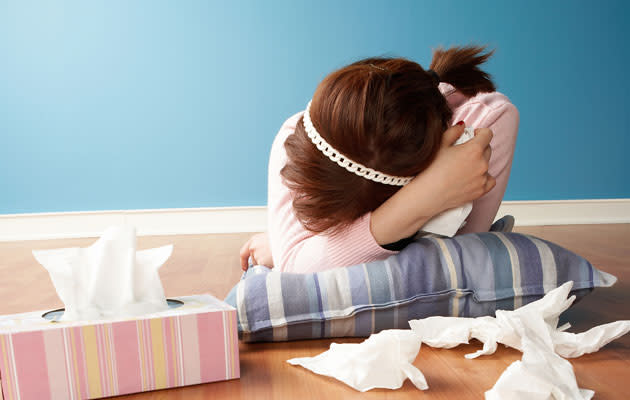 Fit to Post Health
Fit to Post HealthDon’t put up with pain after cancer treatment
Medical advances and early screening have led to an increase in the number of cancer survivors, many of whom are able to return to their normal lives. But for others, day-to-day functioning continues to be marred by cancer pain. Fortunately, effective options exist for pain treatment.
Research shows that breast cancer survivors, for instance, experience a 15 per cent reduction in their functional well-being. Removal of the lymph nodes in the armpits notably may increase the risk of postoperative pain, while radiotherapy has been linked to chronic nerve pain around the breast region.
“It is important to recognise that cancer patients may still suffer chronic pain even after their primary cancer have been removed,” says Dr David Woo, Consultant, Department of Women’s Anaesthesia, KK Women’s and Children’s Hospital (KKH).
Related article: Foods that help speed up cancer recovery
Post-treatment cancer pain can be caused by a number of factors. Below are some examples:
Adhesions and contractures may form after surgery
Steroid use may lead to pseudo-rheumatism in multiple joints
Chemotherapy may cause generalised muscle pain or peripheral nerve pain in the hands and feet
Radiotherapy may result in nerve pain and muscle aches
Cancer that has affected the abdominal organs may result in shoulder or back pain
“Sometimes, the cancer may return in the bones, and present as chronic back, shoulder or hip pain even when patients think they have survived the cancer,” says Dr Woo. “There can also be pain from fractures caused by osteoporosis or their cancer.”
Cancer patients are also more likely to suffer from anxiety or depression, conditions that have been associated with heightened pain sensation. Additionally, in the past, they may have been on strong pain medications such as morphine, which can reduce their sensitivity to similar pain medications.
For Nurses’ Day: Always wanted to thank a SingHealth nurse? Here’s your chance to leave a note online
Cancer pain treatment
Cancer patients who develop pain after cancer treatment should not ignore the pain, Dr Woo advises. These cancer survivors need to consult a pain specialist who will carry out a thorough assessment of their condition and prescribe treatment.
Pain treatment for cancer survivors requires a multidisciplinary approach involving drugs as well as psychological and physical rehabilitation.
Pain treatment options include:
Drugs such as anti-convulsants and antidepressants to reduce the nerve pain caused by chemotherapy and radiotherapy
Strong opioids such as morphine to help the patient cope with aches and pains due to residual cancer in the bones
Nerve blocks under imaging guidance to help ensure local anaesthetics and other medications are delivered correctly to the nerves that carry strong pain signals back to the brain.
Catheters and tubings placed into the spinal canal so that medications can be delivered directly to the nerves
“Multidisciplinary therapy has been shown to be effective for the management of chronic pain for cancer survivors. With specialised pain treatment modalities, patients no longer have to bear this pain in silence but rather enjoy a better and more functional quality of life,” says Dr Woo.
Related article: Want to improve your cancer survival chances? A doctor shares how
To find out more about common pain issues targeting women, join KKH’s pain specialists at their English public forum, “Overcome pain, Live well again!” on Saturday, 20 July 2013, 2pm to 4pm at the KKH Auditorium, Level 1, Women’s Tower. Call 6394 5038 / 1582 to register. $5 per participant. Give pain a break and learn how you can live well again!
This article was written by Anjana Motihar for Health Xchange, with expert input from the Department of Women’s Anaesthesia, KK Women’s and Children’s Hospital (KKH).
Looking for doctor’s advice and health tips from the experts? Visit HealthXchange.com.sg, Singapore's trusted health and lifestyle portal.
Health Xchange's articles are meant for informational purposes only and cannot replace professional surgical, medical or health advice, examination, diagnosis, or treatment.



